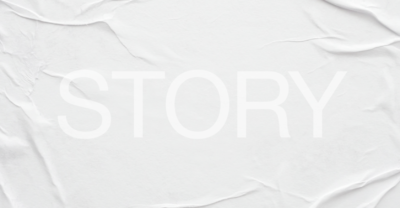RE-SEE STORIES
Why we need a new story for our future | Dec 1 2022

Our future has never been more predictable. For the first time in human history we know the story of what will happen next. The climate crisis has been the forcing mechanism for us to see how we will be living in 2030, 2050 and 2100 — of how we will choose to allocate resources, of what we will choose to value and how we choose to live. In this respect, the climate crisis has been a gift to humanity. Yet we seem to be unable to actively take control of this narrative of our collective future and shape a story for the world where we can all play a role as heroes, not villains.
By Ben Parker, co-founder
In the creative industries, storytelling is the lifeblood of our work.
A story is a beginning, a dream, a promise, a conviction – a story contains a multitude of possibilities.
More importantly, stories connect us all to each other and the world in which we live.
Our pre-industrial societies depended on nature, and created rich cultures of storytelling which linked them to the planet, and which played a vital role in our survival as a species.
Our stories have always been the foundations for how we understand the world, and how we teach the next generation to thrive within it – our stories are our lifeline to the future.
As author Will Storr says – “good stories start with moments of unexpected change”.
Today, we are surrounded by more storytelling than ever before. Yet, the unexpected change we are experiencing is, in truth, a lack of story.
We have lost the narratives that connect us back to each other and to nature. We are still searching for a new vision for our times, and without one we are living in danger.
The ability to harness the power of storytelling has been vital to all moments of great need, and change, for humanity. However, the defining event of our age – the climate crisis – has left us with no clear narrative for the future.
We all know the clock is ticking. As Sir David Attenborough noted when he joined instagram: “What we do in the next 20 years will determine the future for all life on Earth”.
But what he said next is of vital importance: “Saving our planet is now a communications challenge. We know what to do, we just need the will”.
This single quote is a call to arms for the creative industries and the collective role we can fuflil.
Our task today is to build a vision of the future that brings people together.
Our task is to shape a story for the world where we can all play a role as heroes, not villains.
Our task is to communicate a new era in an exciting and directed manner, not a random and frightening way.
We are faced with the challenges of ushering in a new age: how can we make people care for the right things? How can we help them understand the new models and systems that we will need to adopt? How can we make things “meaningfully desirable”?
Our belief is that every organisation has the potential to create positive impact in the world through the right combination of message and actions.
After all, belief precedes reality. Put simply – we cannot be what we cannot see.
Today it’s clear that we need to rethink our power as storytellers – to tell a story of a positive future in order to bring it to life.
Without that story we are lost.